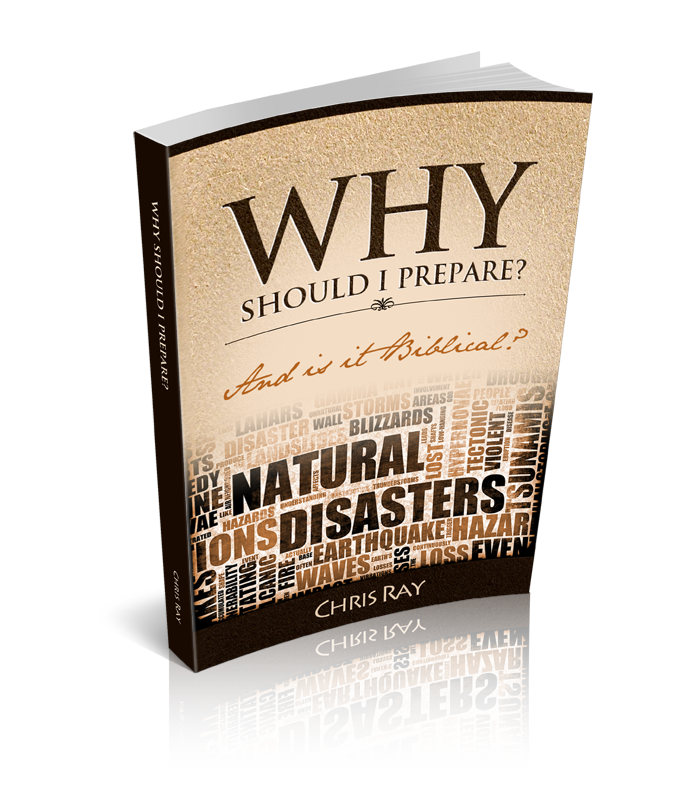Make sure you see the end of this article to see how one of Prepared Christians sponsors, Camping Survival, is spreading some Paracord love with a discount and some free paracord for me to give away.
Paracord or parachute cord, or 550-cord is rope that is as useful as duct tape and something that I think belongs in every home, if not every kit.
What exactly is it and what makes it the king of cordage? Paracord is a nylon rope that first saw use in parachutes in World War II. It is made from seven two-ply threads shielded in an outer nylon jacket. Paracord has a tensile strength of 550 lbs., hence the name 550-cord. If needed, you can put two sections together, doubling the weight limit. Its diameter is only 1/8”. Paracord is also mildew and rot resistant, aiding to its versatility.
Now that you know what it is, what is it good for?
Bracelets
Either worn to make a fashion statement or as a means to always have some paracord close by. Many people braid their own bracelets, but you can buy them online as well.
Belts
This is another option to make sure you always have some cordage nearby. I also think that this is a perfectly acceptable reason to gain some weight. You see, if you gain enough you’ll need new bigger pants, which will mean more paracord to keep them up!
Lanyards
This is a great way to have a small section with you. I carry one attached to my keychain. Sure it’s not a very long piece, but enough to tie someone’s hands together if needed or to make a bow drill.
Start a fire
Paracord is perfect for using as part of a bow drill.
Dog Collars and Leashes
Can’t find a leash the right length or the right color? Paracord is your solution!
Fishing and Trapping
You can pull out the strands and use one as fishing line. You can also use paracord to make snares for small game.
Handle Coverings
I have seen some people wrap paracord around the handle of straight edge knives. I have also seen it wrapped around the handle of walking sticks.
In the Field
There are so many things it could be used for on a hike or while camping that I wouldn’t be able to list them all. Here are a few: Busted shoelace, broken backpack strap, a splint for a broken limb, temporary shelters (would work great with tarps), emergency stretcher, guide rope, babysitter (haha) and hoisting a cooler to keep it away from bears.
Camping Survival is one of the leading paracord vendors in the market. In fact, I purchased a 1000’ spool from them years before I started this site. Their selection is almost unmatched. They have a wide variety of lengths and colors available. They also have some premade paracord bracelets and other items as well.
Special Pricing!
Camping Survival is currently having a sale on all ROTHCO brand paracord for 15% off, but they have offered a 5% discount on all other paracord to the readers of Prepared Christian. For the 5% discount, just use the code preparedchristian at checkout.
Free Paracord!
To help celebrate the goodness that is paracord, Camping Survival has given me three 100’ sections to give away. To enter, either send an email to Chris (at) preparedchristian (dot) net, with the subject line of “paracord contest” or fill out the form below. Only one entry per person please, (I’ll just delete multiple entries). Winners will have to provide your mailing address, which I will delete after I send the paracord.
Update! I initially forgot to mention that I will select 3 random winners on Monday October 8th.
Final thoughts
Cordage is one thing that is difficult to make do without when you need it. Sure, it’s possible to make from other things such as yucca plant for example, but it is just not as good as even a regular rope. Paracord is so lightweight, strong, versatile and durable that I just can’t see a good reason not to have some in your kits. And with the discounted prices, their availability and variety, I can’t see any reason not purchase it from Camping Survival. I want to thank them for supporting Prepared Christian and you the readers with this give away as well as the discounted price.
[onw_simple_contact_form]






